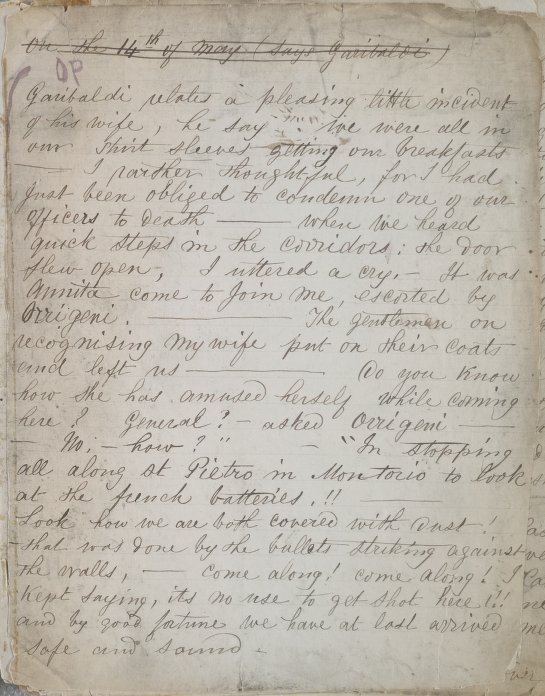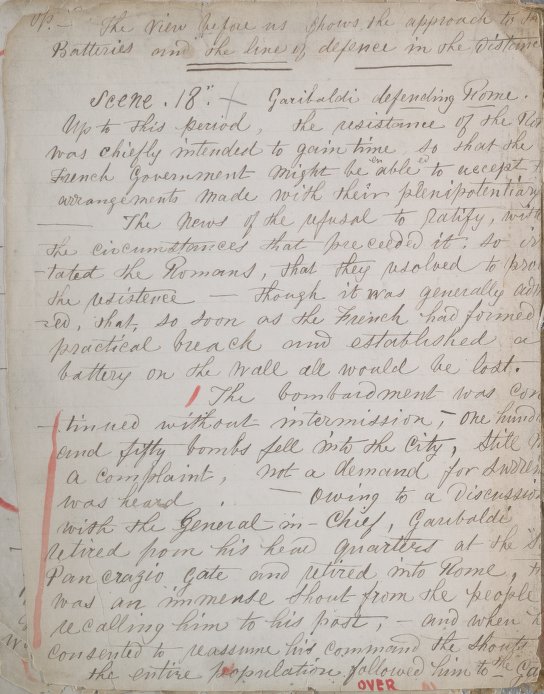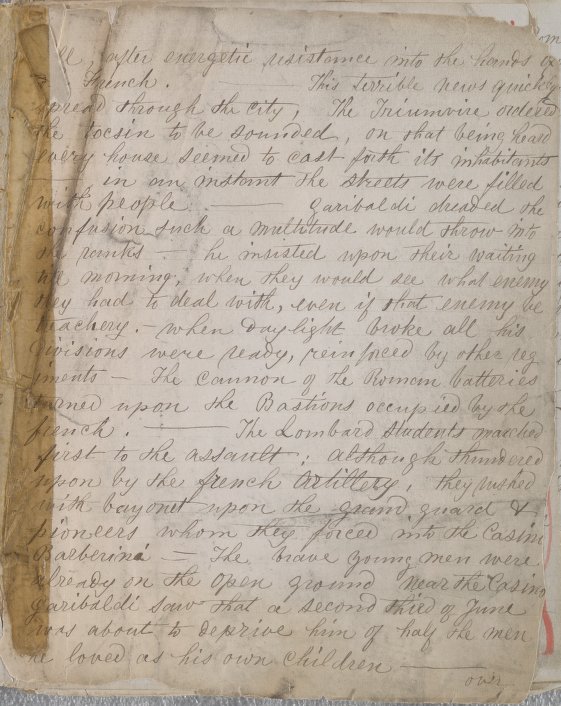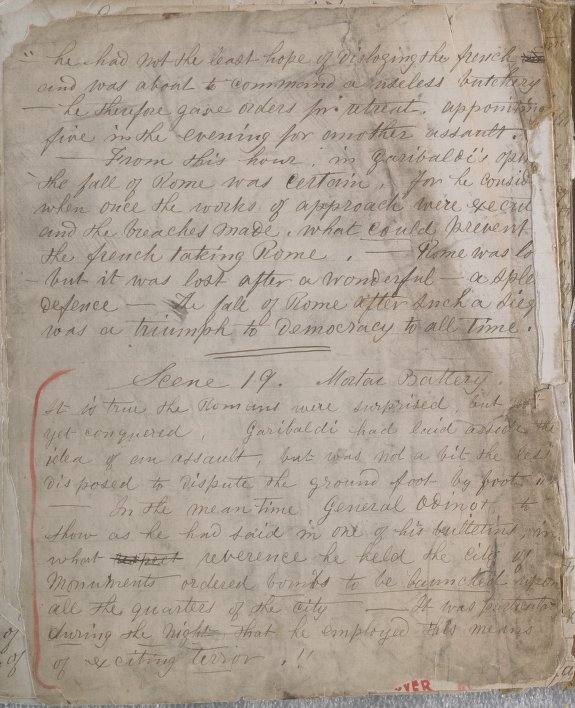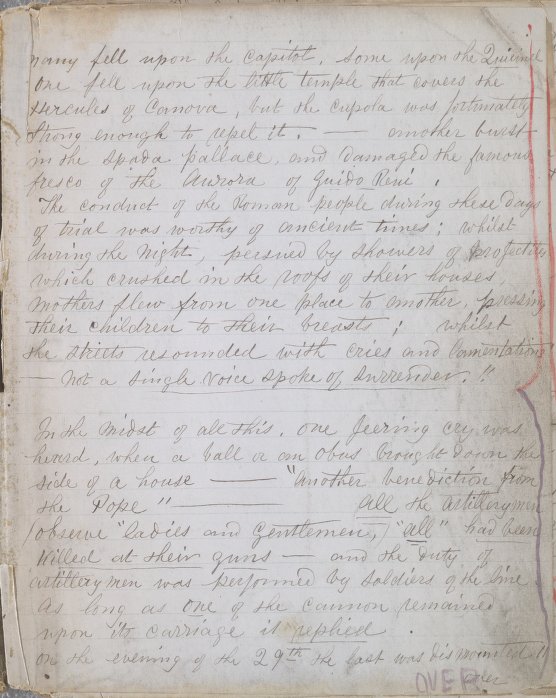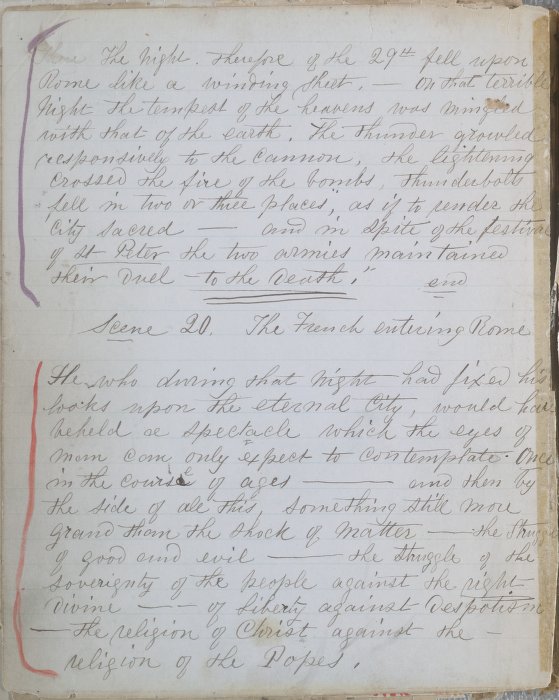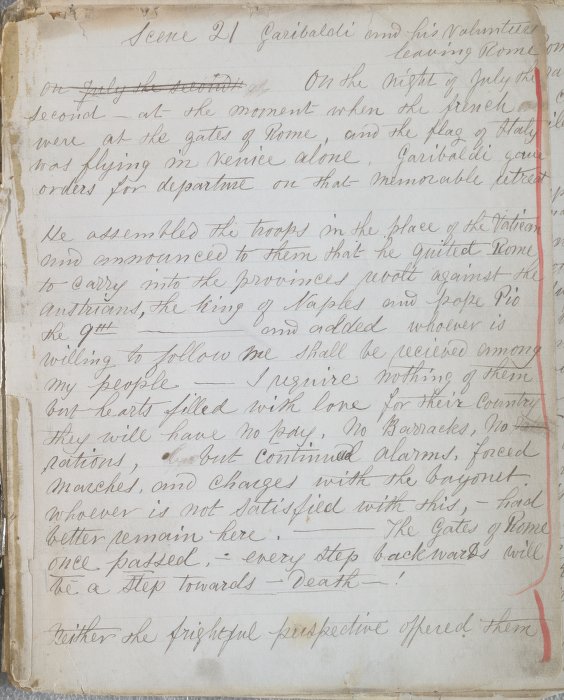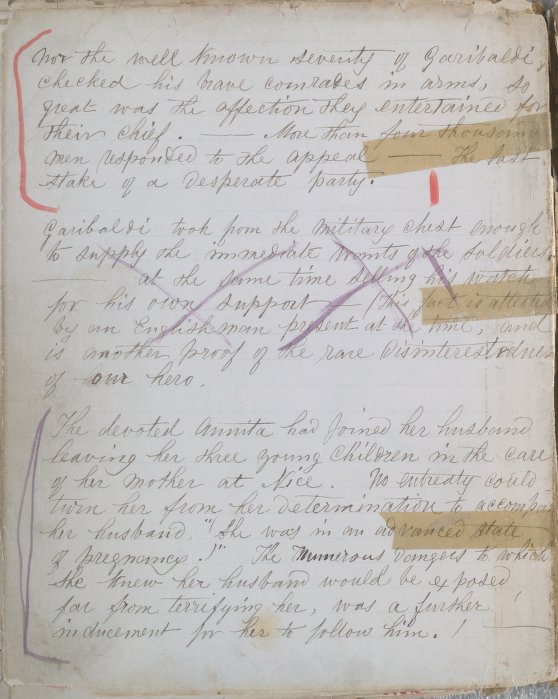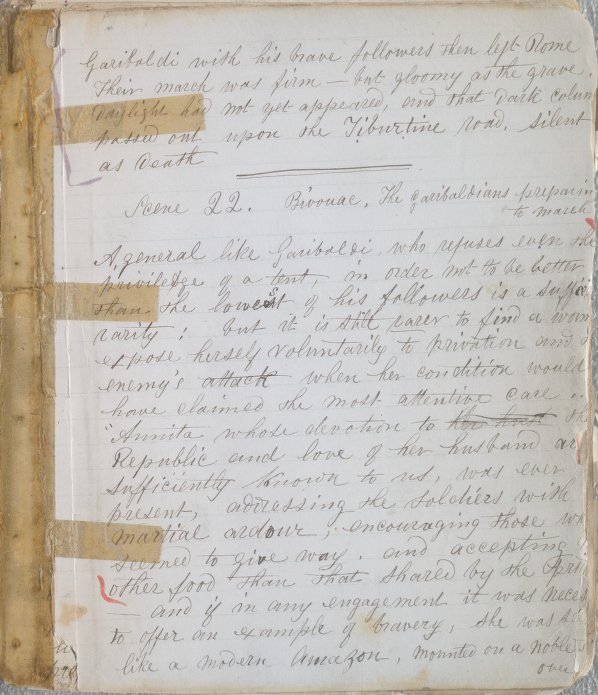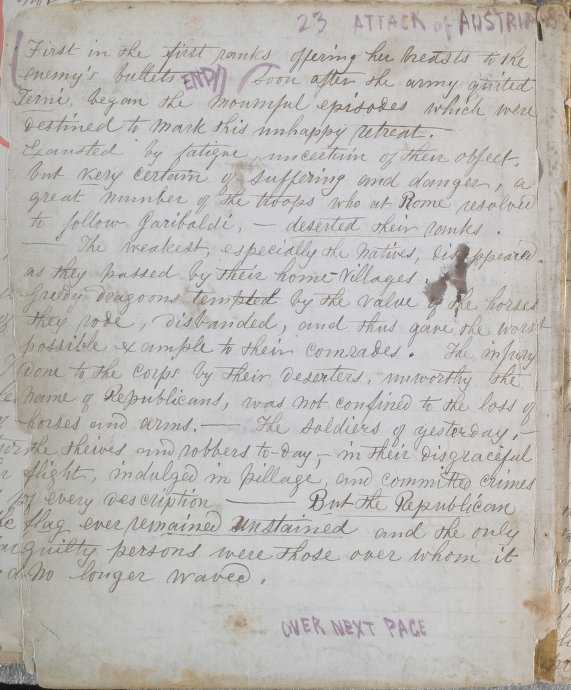Page 61
Garibaldi relates a pleasing little incident
of his wife, he say, "We were all in
our shirt sleeves getting our breakfasts
—I rather thoughtful, for I had
just been obliged to condemn one of our
officers to death—when we heard
quick steps in the corridors: the door
flew open, I uttered a cry,—It was
Annita come to join me, escorted by
Orrigeni.—The gentlemen on
recognising my wife put on their coats
and left us—Do you know
how she has amused herself while coming
here? General?—asked Orrigeni—
—No;—how?" —"In stopping
all along St Pietro in Montorio to look
at the french batteries.!!—
Look how we are both covered with dust!
—that was done by the bullets striking against
the walls,—come along! come along! I
kept saying, it's no use to get shot here!!!
and by good fortune we have at last arrived
safe and sound—

